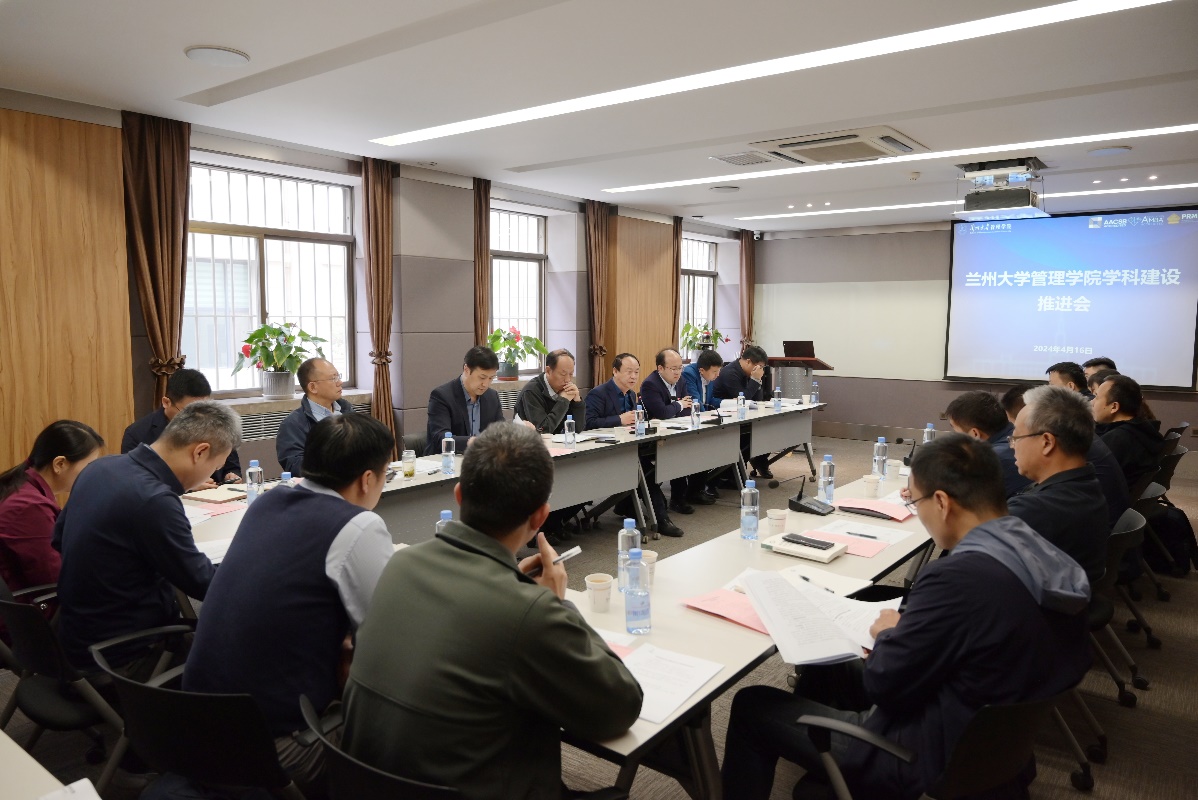News
LUSM Held a Meeting on the Advancement of Discipline Development
On the morning of April 16, LUSM held a progress conference on discipline development in Room 204 of the Qiyun Building. Sha Yongzhong, Vice President of LZU and discipline leader of emergency management, Wang Xuejun, Chief of the Division of Social Sciences and academic backbone of the direction of government performance management, Bao Guoxian, Honorary Dean of LUSM, Liu Yajun, Secretary of LUSM CPC Committee, Wu Jianzu and Zhang Guoxing, Associate Dean of LUSM, Chang Tao, Deputy Secretary of LUSM CPC Committee & Associate Dean of LUSM, Heads of the Departments of Public Administration and Business Administration, leaders of the direction of disciplines and academic backbones, and relevant staff attended the meeting. It was presided over by Wu Jianzu.

Sha Yongzhong said that LZU has adhered to the practice of fulfilling its responsibility and mission in constructing high-level academic disciplines. The School should always bear in mind its mission to serve the nation and closely align with the China’s strategic needs as well as economic and social development. Wang Xuejun presented an overview of the scientific research and discipline development in the School of Humanities and Social Sciences at the university, and highlighted its profound impact. Wu Jianzu conveyed the goals and requirements articulated by the university leaders for discipline construction, and introduced LZU’s policies and LUSM’s construction objectives and work priorities. Bao Guoxian proposed that LUSM should highlight the strengths of its disciplines, leverage the School’s advantages, and showcase the characteristics of its talent cultivation model. Additionally, he suggested increasing resource allocation to enhance the internationalization of the School and effectively organize a series of activities commemorating its 20th anniversary. Liu Yajun put forward specific requirements for the School’s disciplinary development, including the three levels of clarifying the ideological consensus, determining the work objectives and coordinating the resources.





